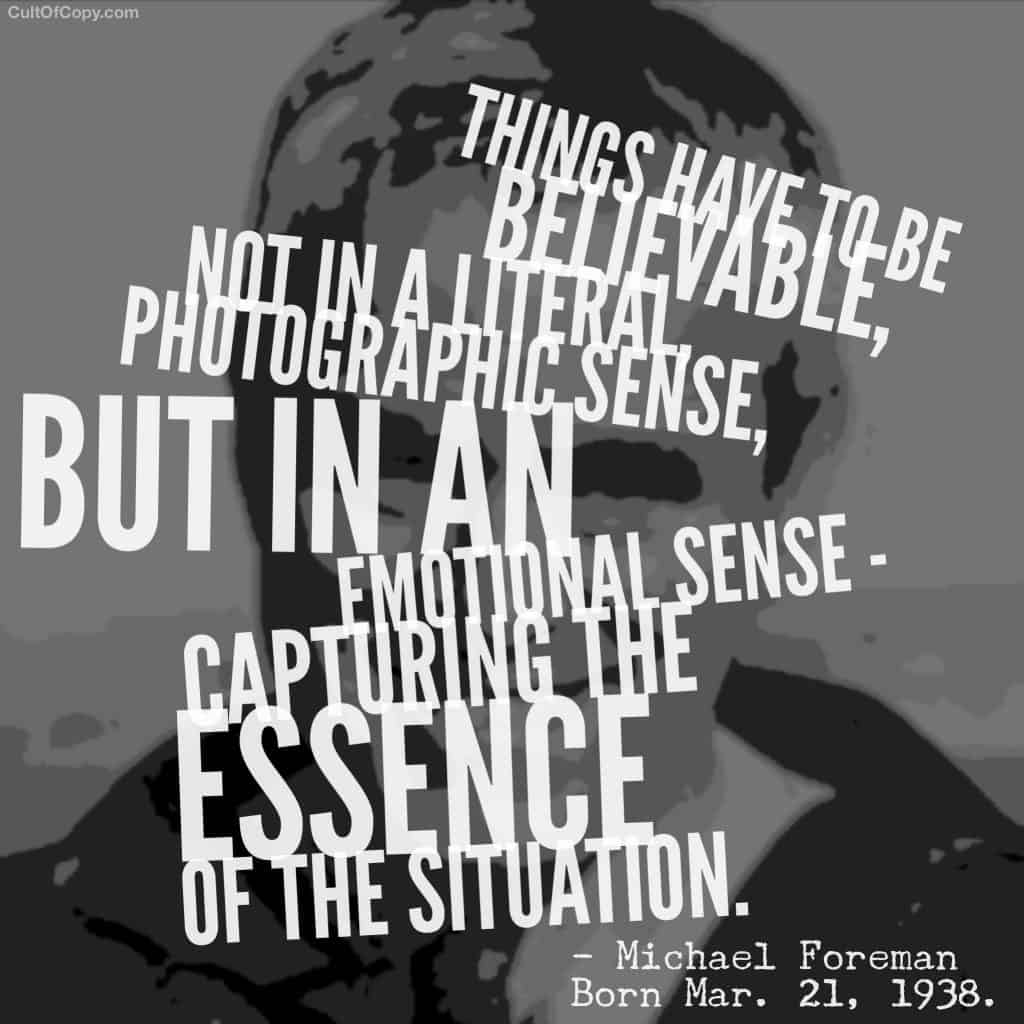“Things have to be believable, not in a literal, photographic sense, but in an emotional sense – capturing the essence of the situation.” – Michael Foreman, Born Mar. 21, 1938.
Emotional authenticity is key.
What people frequently call “hype” is when the writer's enthusiasm is inauthentic. It feels forced and faked, and therefore what you're promising and pushing feels like a trick.
But authentic emotions and appropriate intensity level don't ever feel like hype. They feel earned. They feel TRUE.
And for most people, feelings are more REAL than the facts. In fact, the way people decide to believe a fact or not is almost entirely based on whether it FEELS true.
And a lot of the feeling we have about a given piece of information has to do with the SOURCE.
So when you are their source for a given piece of info – something we want our audience to accept and believe – to absorb and incorporate in their model of reality…
You have to deliver your message with appropriate and AUTHENTIC emotion. In writing. Which can be tricky, admittedly.
The key is in providing sufficient and relatable reasons for the emotion you're portraying. Tell them WHY you feel that way. Details. Stories. Villains. Wrongs. Triumphs. Lucky breaks. Etc.
That's what anchors the emotion and gives the reader something to attach it to – a cause.
If you're mad, the reason why needs to be something that would make the reader mad, too.
If you're excited and hopeful, the reader needs to know about what you're anticipating and believe how possible it is.
If you're telling them about your past of worry and woe, they need to know the details of your situation so they can substitute their own parallels and engage their empathy.
That's how you summon their own emotions – technically they are imagined, or remembered emotions, triggered by our biological capacity for sympathetic response.
But the brain can't tell – to recall or conjure an emotion is to REALLY FEEL it. You cry at a sad movie, or scream at a scary movie, even though you know it isn't real. Your brain can't tell – simulated emotions are real.
And that is incredibly powerful persuasion.
So don't mess it up.
If you mess it up, it breaks the spell and they are reading ABOUT you instead of engaging in your story WITH you. And you'll be left wondering why engagement, and response, and sales are in the toilet.
Don't be in the toilet. You're a better writer than that, aren't you?

